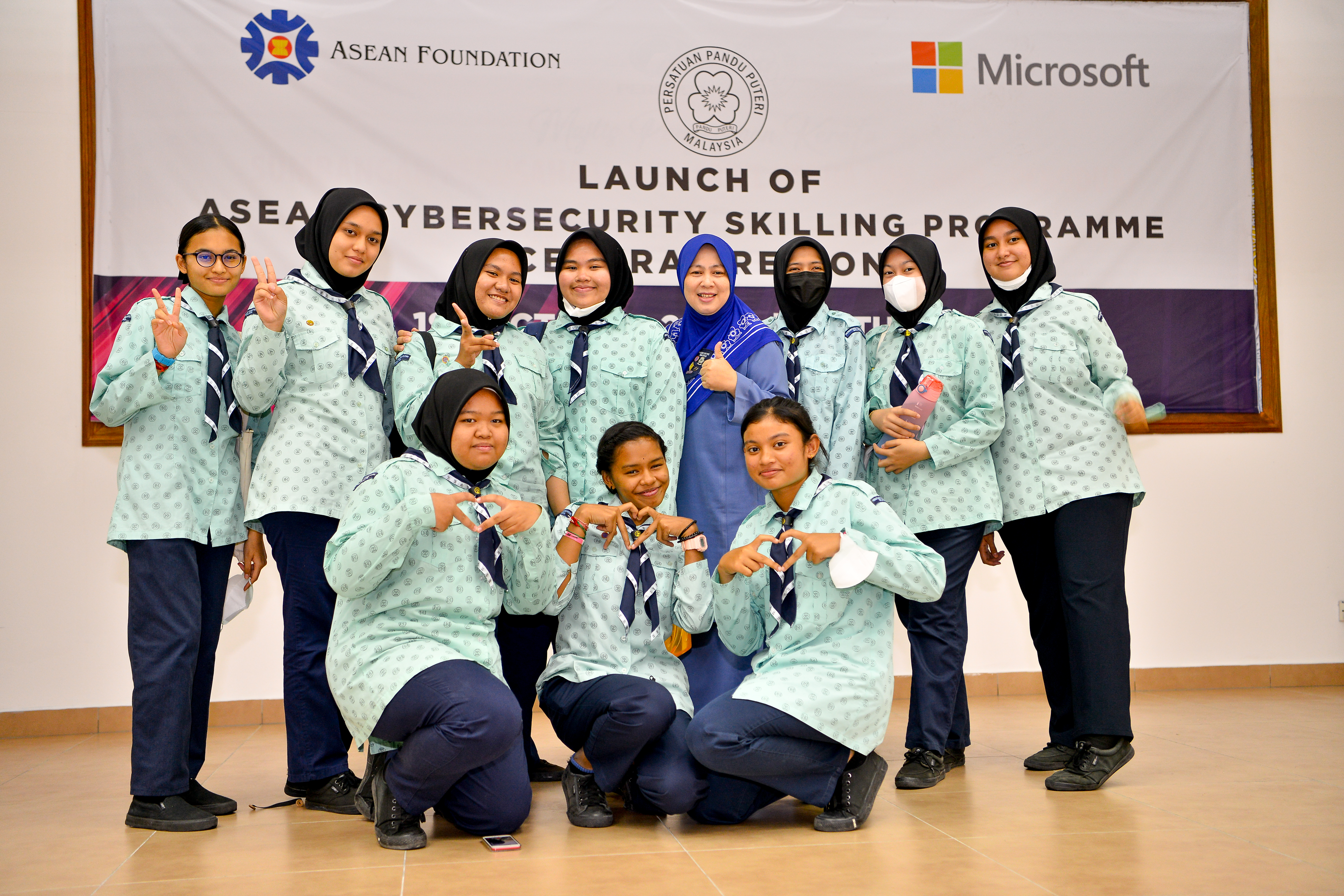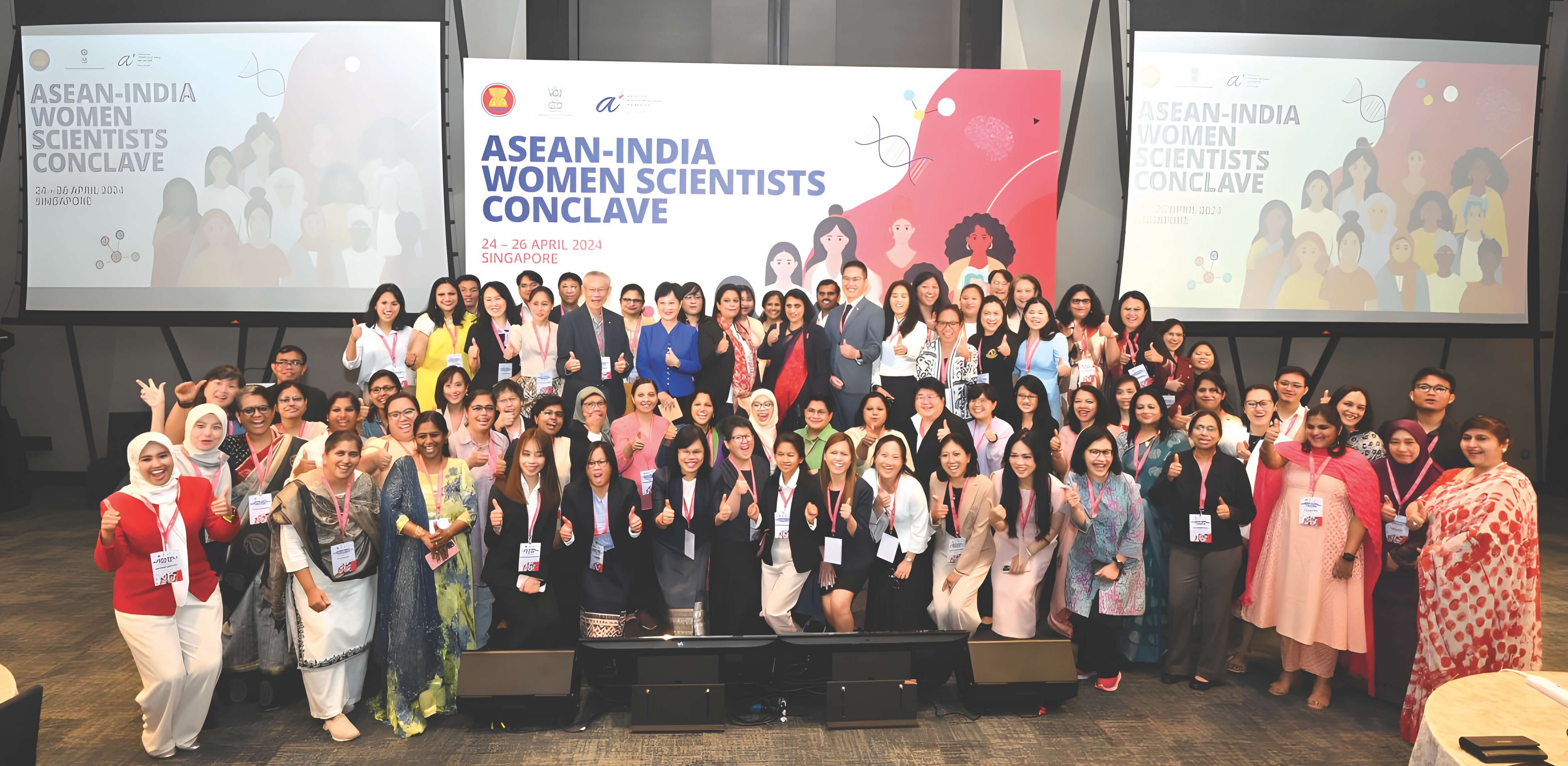




According to the 2020 Global Digital Report, the average internet penetration rate in Southeast Asia is 66 per cent. The COVID-19 pandemic only accelerated digital adoption in the region, making its citizens more reliant on the Internet than ever. The region is undoubtedly poised to take its position amongst the world’s top digital economies.
But, such rapid digital disruption has triggered unprecedented cyberattacks in the form of malicious email, identity theft, and malware, that violate people’s rights to online privacy and threaten their safety. The negative effects of cyberattacks are not limited to financial loss, but also extend to threats to life, mental health, and the disruption of people’s daily lives.
Cybercrime is on the rise. Cybercriminals have become more organised as they share their resources and expertise. With increasing numbers of cyberattacks and an alarming shortage of cybersecurity professionals, it is essential for different sectors to band together to address the issue.
In response, the ASEAN Foundation, in collaboration with Microsoft, launched the ASEAN Cybersecurity Skilling Programme in February 2022. The programme is committed to combatting cybercrimes in the region by raising awareness, increasing knowledge, and upskilling the ASEAN youth on cybersecurity. To achieve these objectives, ASEAN Foundation has partnered with eleven local implementing partners in seven ASEAN-Member States, namely, Cambodia, Indonesia, Malaysia, the Philippines, Thailand, Singapore, and Viet Nam. The programme supports the ASEAN ICT Masterplan 2020 and the ASEAN Work Plan on Education 2021-2025.
“As digital technologies become more interwoven with study and leisure, the youth are exposed into different types of cyberattacks. Therefore, having a secure cyberspace should be a priority and necessity for all of us,” said Dr. Yang Mee Eng, Executive Director of the ASEAN Foundation.
The programme aims to train educators, non-profit trainers, fresh graduates, career shifters, and the youth across ASEAN to deliver cybersecurity knowledge to 30,000 end-beneficiaries in the region.
The programme has four major activities; a baseline research, development of a learning module, training of trainers, and empowerment sessions.
Research and module development
From March to April 2022, the ASEAN Foundation conducted a series of focus group discussions (FGD). The FGDs solicited the points of view of cybersecurity experts and practitioners, relevant government officials, researchers, members of the academia, and the youth on cybersecurity issues in ASEAN and emphasised the importance of upskilling the ASEAN youth on cybersecurity. ASEAN Foundation also conducted a cybersecurity survey participated in by ASEAN youth which revealed their level of awareness and knowledge, attitude, and practices about cybersecurity.
Following this successful baseline research, the ASEAN Foundation worked with ASSIST Creativelab and Microsoft to create the learning module “Introduction to Cybersecurity.” The learning module’s content capitalises on Microsoft’s resources and is grounded on the results of the baseline research. The learning module will be added to the Future Ready ASEAN Platform (futurereadyasean.org) and will be localised into different ASEAN national languages. It will be free and accessible to ASEAN youth who want to start their cybersecurity learning journey.
Training of trainers
One of the main projects of the ASEAN Cybersecurity Skilling Programme is the training of trainers, a training workshop designed to increase knowledge and raise awareness of ASEAN youth so that they can protect themselves from cyberattacks. It also aims to equip the participants with basic cybersecurity skills needed to pursue further studies and careers in cybersecurity. The participants of this type of training are called master trainers because they will be cascading the knowledge they have learned to the underserved youth in their local communities. Justin Pineda, President of Pineda Cybersecurity Specialists, is in-charge of training the master trainers in the participating countries.
The ASEAN Foundation is working with local implementing partners, which are composed of non-profit organisations, non-government organisations, and academic institutions, in the seven ASEAN Member States to roll out these workshops.
The 11 civil society organisations and social enterprises that are helping the ASEAN Foundation combat cybercrimes are the following: ASEAN Youth Organisation, Bullyid Indonesia, Indonesia Mengajar, Girl Guides Association Malaysia, Universiti Putra Malaysia, CyberGuardiansPH, YGOAL, Inc., Girl Guides Singapore, Social Technology Institute, Ai Vet Social Enterprise, and TUX Global Institute.
“Right from the start when ASEAN Foundation invited us to apply for ASEAN Cybersecurity Skilling Programme, we knew that this programme will be one of the avenues that will allow us to set up the mechanism and the structure for the sustainable implementation of our Cyber Safe Schools programmes in the Philippines,” said Ma. Concepcion T. Sangil, Executive Director of CyberGuardiansPH.
A master trainer from CyberGuardiansPH noted, “As an IT practitioner myself, I felt that it is my obligation to help the youth through education.”
The programme also takes into account inclusivity by making sure that there is a gender balance in identifying and selecting master trainers and endbeneficiaries. “I think it is important for girls to empower themselves by learning new skills so that they know they can be anything they want to be. Girls are no exception to cyberattacks. We are also users of the internet so we need to learn these things so we can take an active role in this era of new technology,” said Hei Yi Jing, a master trainer from Girl Guides Association Malaysia.
Empowerment sessions
After the training of trainers workshops, each local implementing partner is tasked to host empowerment sessions in the local community. The objective of these sessions is to reach out to underserved communities, such as youth who are living in Tier 2 and Tier 3 cities, with disabilities, from ethnic communities, and from gender minorities, to educate them on how to be safe in cyberspace and the importance of learning about cybersecurity. Since October 2022, several empowerment sessions led by master trainers have been conducted in different cities in the region. Some of the VIPs who attended the empowerment sessions include local government officials in Indonesia, national government officials in Thailand, a member of the royal family in Malaysia, and directors from Microsoft.
Most of the attendees appreciated the cybersecurity hacks and prevention tips that ASEAN Foundation has shared. “What I like about the empowerment session is that it was relevant and useful even for those who did not have adequate background knowledge on the subject matter,” says one of the end-beneficiaries from Pampanga, the Philippines.
Programme impact
The ASEAN Foundation is elated to see that the programme has successfully made cybersecurity knowledge accessible to ASEAN Youth..
“The ASEAN Cybersecurity Skilling Programme has allowed the youth to appreciate cybersecurity as a tool to protect themselves online. We have master trainers with no IT or STEM backgrounds who realised that cybersecurity is not as intimidating as it sounds,” says Sangil. She added that there are master trainers who found a calling to further pursue a career in cybersecurity. This feedback has been echoed by different participants across all seven countries.
For Michael Nugraha Budiarto, Vice President of External Affairs of ASEAN Youth Organisation, raising awareness about cybersecurity is a prerequisite for the youth to understand what is to come, allowing them to stay relevant in the vast and rapidly developing digital world.
“Through the programme, we see improvement in the youth’s understanding of controlling their data privacy and levelling up their knowledge of stalkerware and spyware. They feel more confident navigating their behaviour online and understand better what could trigger cybersecurity issues within the organisation,” adds Agita Pasaribu, CEO of Bullyid Indonesia.
Moving forward–The path to creating a safe cyberspace for youth
The ASEAN Foundation and Microsoft’s Learning Module on Cybersecurity will be launched in November 2022. ASEAN Foundation will also continue its public awareness campaign to promote the ASEAN Cybersecurity Skilling Programme and the cybersecurity course across the 10 ASEAN Member States. The foundation hopes to continue creating a safe cyberspace for ASEAN youth through this initiative.
FutureReadyASEAN is an online learning platform that offers courses and resources on digital literacy, programming, data science, and Microsoft applications. It was jointly developed by the ASEAN Foundation, Empire Code and Microsoft and was launched in March 2019. The platform is part of the ASEAN Digital Innovation Programme of the ASEAN Foundation.
(Source: https://futurereadyasean.org/)








